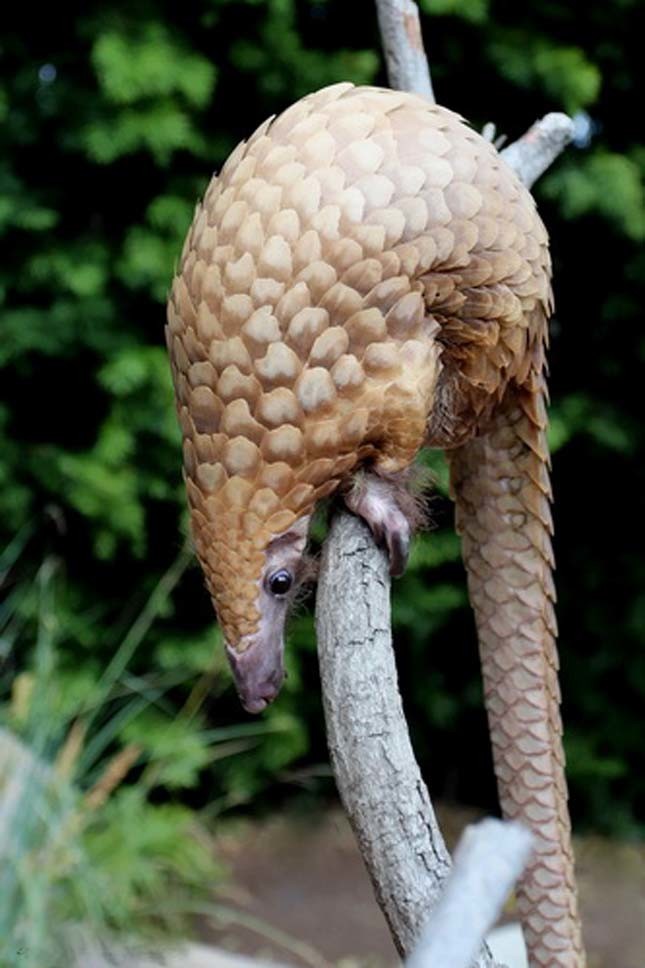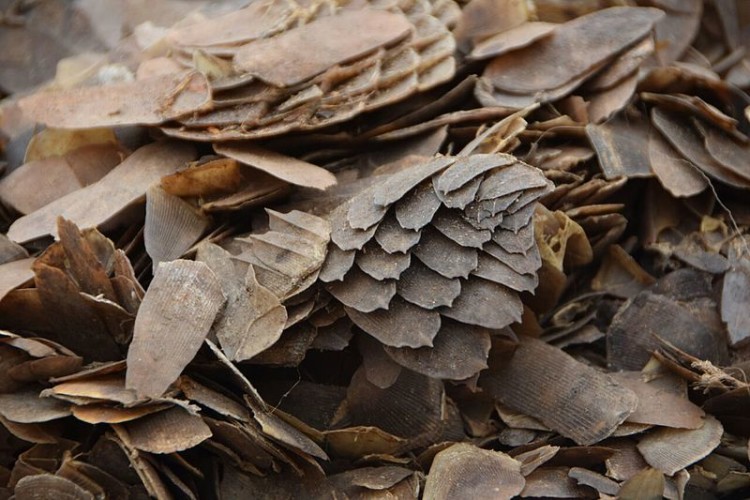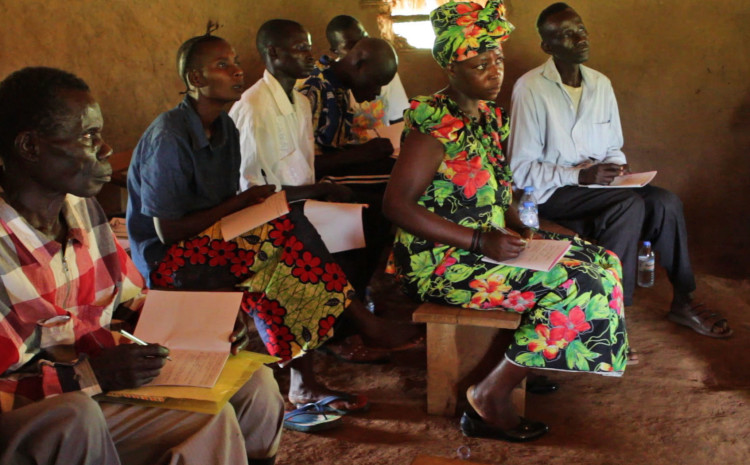What do you get when you cross an anteater with a pinecone? A pangolin. You may recognize the name, since this strange-looking animal is making a big, adorable, online splash lately. Maybe, like us, you’ve been binge-watching baby pangolin videos, pangolins walking like T-Rexes, or riding on their mother’s tails. If you are a true pangolin fan, you know that they are the real-life version of the Pokemon, Sandslash, that their tongues are longer than their bodies, and that have been around since the time of the dinosaurs. The most important fact about pangolins, however, is that they are the most heavily trafficked animal in the world.

Tree pangolin in the San Fransisco Zoo, Nikolay Usik
According to the International Union for the Conservation of Nature, over one million pangolins have been poached since 2006, despite strict regulations by the Convention on International Trade of Endangered Species of Wild Flora and Fauna (CITES). Their meat is highly sought out in some parts of East Asia as a delicacy, and many believe that their scales can be ground into a powder as a cure for cancer, rheumatism, excessive crying in children, and pretty much every ill imaginable. There’s no scientific evidence for this, especially considering their scales are made of keratin, the same thing as human fingernails and hair.
Because of this, this odd little creature is critically endangered across their habitats in Asia and Africa – including areas of central Africa where Invisible Children’s work takes place.

Confiscated pangolin scales lie ready to be burned in Cameroon, Kenneth Cameron
While people around the world are working hard to protect the pangolin and its habitat, this creature is often seen as a pest. Many of the remote and isolated communities that we work with are often unaware of the plight of the pangolin. Unaware of how endangered the pangolin is, people in this part of the world will often kill pangolins they come across to prevent them from eating crops and as a source of meat. Over the years, the region has seen fewer and fewer pangolin. With all of this opposition, pangolins in the area seemed doomed. But we’ve teamed up with local communities and conservation leaders to help change that.
Over the last year, we’ve sent dozens of teams to remote communities in eastern Central African Republic (CAR) and northeastern Democratic Republic of Congo (DRC) to train local leaders in techniques for preventing violence and making their communities safer. Part of that is talking with communities about ways in which they can actively take part in efforts to protect their environment. When communities are empowered to care for the natural resources that sustain them and prevent the illegal poaching that can bring violence to their families, they face less risk.
In April of 2017, we sent a team to a small community in DRC, near South Sudan where armed groups and other poachers often travel through while poaching and trafficking. It’s incredibly important for communities in this region to understand how supporting conservation efforts can help make them safer, so we made sure to train communities on how they can help prevent poaching and employ safe and environmentally-friendly activities into their day-to-day life. Together, we discussed how their community has been affected by poaching-related violence and how they could use tools like the Early Warning Radio Network to report signs of poaching in order to prevent violence. We also talked about how sustainable practices, like avoiding over-hunting animals and rotating crops, can help their environment thrive so that, in the future, there continues to be enough for everyone.

Communities members receive training in Central Africa
Just over a year later, we heard some amazing news from the local leaders we worked with in this community. Following our visit, members of the community considered what we discussed during our training and made the decision to stop the practice of killing pangolin and other animals in the area to prevent damage to crops. After years of seeing fewer and fewer pangolins, warthogs, and baboons in the area, the community is reporting that these creatures are returning to their ecosystem. In a time where the the populations of endangered species are shrinking in almost every other part of the world, we’re encouraged to see progress through empowering local communities to take direct steps to protect the pangolin.
With the support of people all over the world, we’re making incredible strides toward a world in which vulnerable communities are equipped to prevent violence and care for the natural world around them, one community at a time.
GIVE TODAY TO SUPPORT PROGRAMS THAT PREVENT VIOLENCE AND HELP VULNERABLE COMMUNITIES THRIVE
Think people should hear about this?